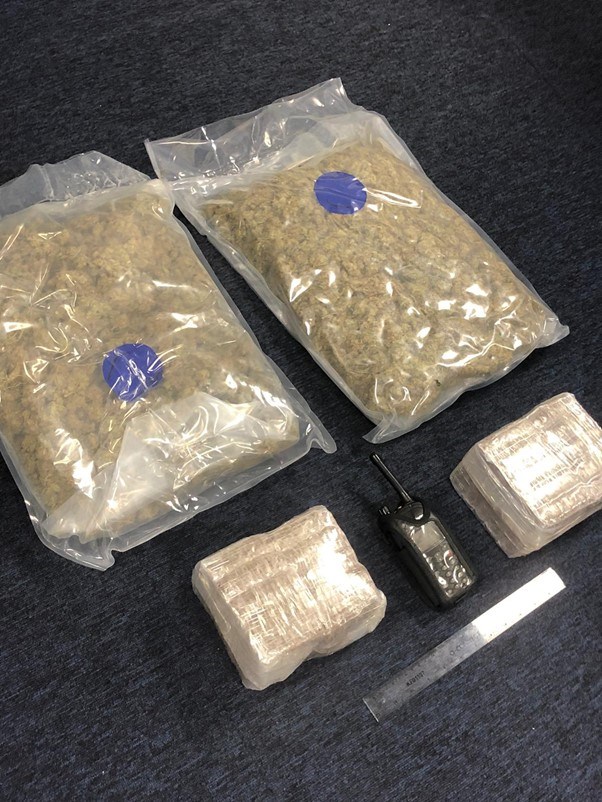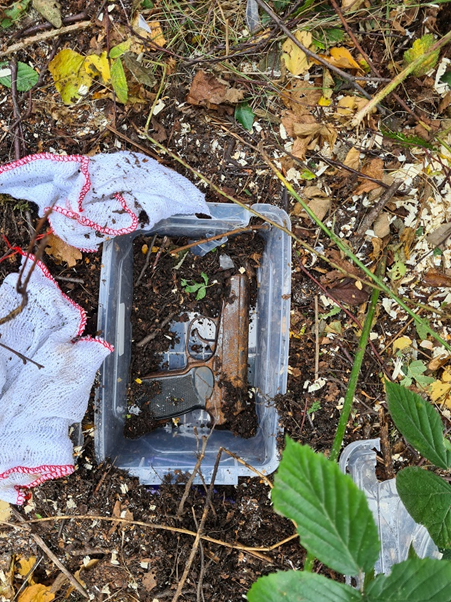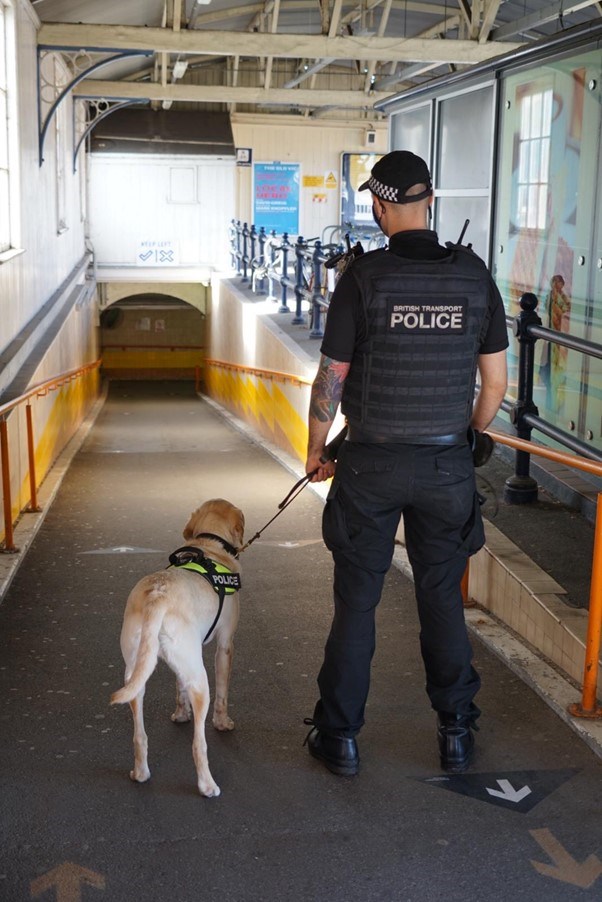25 Sep 2020
More than 1,000 arrested and £1.2 million worth of drugs seized in police crackdown on County Lines
Between Monday 14 September and Sunday 20 September a week of activity was coordinated by the National County Lines Coordination Centre (NCLCC), which is jointly led by the National Police Chiefs’ Council (NPCC) and the National Crime Agency (NCA), funded by the Home Office.
As a result of this activity:
- 1,041 arrests were made
- 1,551 vulnerable people were engaged for safeguarding purposes
- 861 cuckooed addresses were visited
- 102 devices being used to operate County Lines were seized
- There were 69 referrals to the National Referral Mechanism (NRM), which assesses individuals as potential victims of human trafficking/modern slavery
- £526,000 in cash was seized
- Drugs worth more than £1 million were seized including £876,000 of cocaine, £87,000 of crack cocaine and £234,000 of heroin
- 196 weapons were seized including 130 knives, 18 firearms, 5 samurai swords, and 10 knuckledusters.
More than 3,600 people have now been arrested for being involved in County Lines since November 2019 when new tactics were established to target the supply of drugs through this method.
In November 2019, a number of pilot operations funded by the Home Office were launched focusing on the three force areas where the most lines originate from (Merseyside, West Midlands and the Metropolitan Police Service). They involve close collaboration with forces where the lines run into and investigating officers at either end of the line run joint investigations from start to finish. Policing has evolved to focus more clearly on those controlling the line as opposed to those at the lower levels, and as such a clear strategy was developed as part of these operations to target the “lineholders.”
Law enforcement has also developed a much deeper understanding of County Lines and how those orchestrating it operate. It is not a crime type, it is a drugs distribution model, which is the catalyst for a range of criminality including serious violence, modern slavery, drug trafficking and anti-social behaviour.
Tackling violence in all its forms is an absolute priority for policing and significant effort has been invested in understanding how those involved in County Lines contribute to violent crime across the UK. This stark link between drugs and violence is further evident in the results achieved by forces throughout the intensification week.
Detective Chief Superintendent Richard Baker, from the West Midlands Regional Organised Crime Unit (ROCU), said: “Work carried out across the four forces of West Midlands, Warwickshire, West Mercia and Staffordshire resulted in some tremendous successes during this intensification week. This will have a significant impact on the harm this type of criminality causes to local communities and shows that police and partners will continue to be relentless in our efforts to close down County Lines.”
Assistant Chief Constable of Merseyside Police, Ian Critchley, said: “Merseyside Police worked closely with colleagues from surrounding forces to identify and target those involved in bringing misery to our communities through drug supply. Our officers used of a range of technology and tactics to not only arrest those involved but deprive them of the profits gained from this activity. Crime must not pay and in this week alone we seized more than £50,000 and more than £53,000 worth of assets from criminals involved in County Lines.”
Police work closely with the National Crime Agency (NCA) which targets upstream drug traffickers – the international organised criminal groups who smuggle drugs into the country. These drugs are filtered down to children and vulnerable people who are forced to transport them across the UK. The NCA works closely with partners in the UK and internationally, as well as Border Force, to choke the supply of drugs from source countries.
During the intensification period, the NCA led an international operation that resulted in a massive haul of potentially deadly Class A drugs being stopped from hitting UK streets. More than a tonne of Class A drugs – 1,196kg of heroin and morphine derivatives – were recovered from a container ship after it docked at the port of Felixstowe.
The haul would be worth around £21 million to organised criminals at wholesale, and in excess of £120 million at street level. Heroin is typically supplied via County Lines dealing.
Deputy Assistant Commissioner Graham McNulty, the National Police Chiefs’ Council (NPCC) lead for County Lines, said: “Through significant efforts across policing we are beginning to turn what may have previously been considered a low risk, high reward enterprise on its head. Forces are working more closely on the disruption of County Lines than ever before and have closed down a large number of the most violent lines in the UK.
“By targeting those at the centre of County Lines, we not only disrupt the criminal network, but we prevent other criminality including serious violence from occurring. We are putting a spotlight on those responsible for coordinating widespread drug supply, and making them vulnerable to capture.
“County Lines causes misery for communities and it is absolutely right we continue targeting those responsible. The results from this week alone show policing’s unwavering commitment to protecting the public and bringing criminals to justice.”
Nikki Holland, NCA Director of Investigations and joint national County Lines lead, said: “The violence, exploitation and utter misery caused by County Lines networks can be felt all the way from the top of the chain in the countries where the drugs are produced, right to the bottom on the streets of the UK.
“The NCA targets the international organised criminal groups who smuggle the drugs into the country that are then filtered down to the children being forced to transport them across the UK. By focusing on those at the top of the chain and effectively cutting the head off the snake, we reduce drug supply to the UK, making it an unviable business for the criminals involved.
“This joint approach with policing and our international partners allows us to mount our co-ordinated attack from all angles, and to disrupt firearms supply, money laundering, corruption, people trafficking, and other violent and exploitative crime that these groups are also involved in.”
Home Secretary Priti Patel said: “I will not tolerate County Lines drugs gangs terrorising our communities and exploiting young people, which is why I have made tackling this threat a priority.
“I saw first-hand one of the operations last week and the results of this latest crackdown are hugely impressive. They send a clear message to criminals that law enforcement is coming after them.
“I will continue to back the police in their fight to roll up these gangs, including through our £25 million investment in this crucial work.”
Anyone with concerns about County Lines can speak to local police on 101 or call 999 in an emergency. If you would rather stay anonymous you can call the independent charity Crimestoppers on 0800 555 111.
If you are a young person who is worried about being involved in County Lines, or knows someone who is, you can contact www.fearless.org who allow you to pass on information about crime anonymously.
Contact information
Communications office
By phone: 0800 538 5058
By email: press.office@npcc.police.uk



